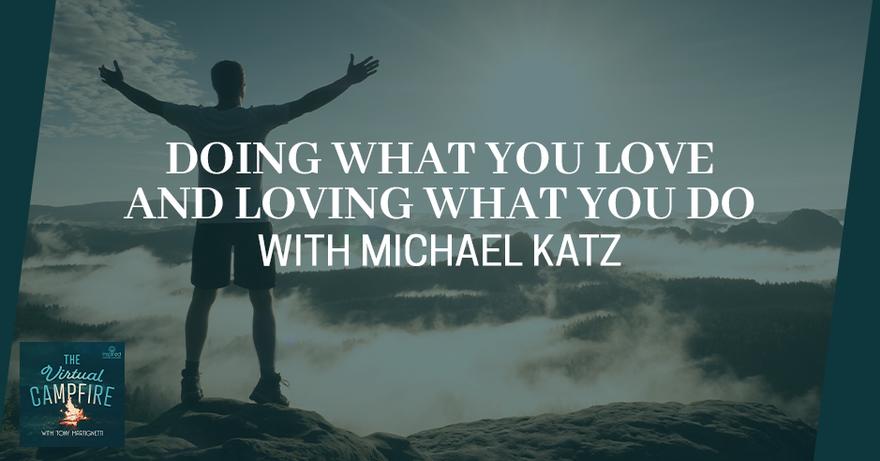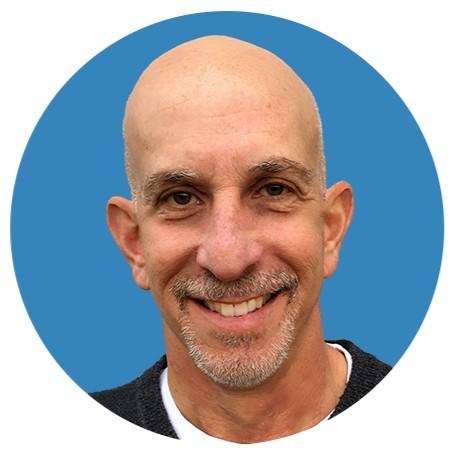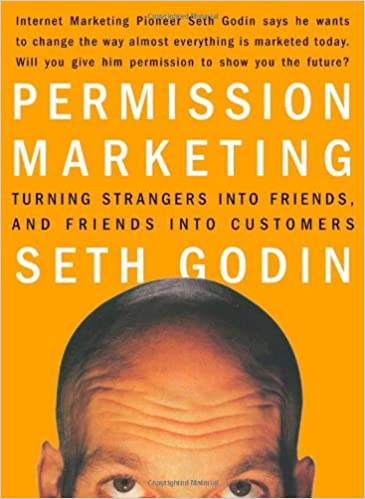Doing What You Love And Loving What You Do With Michael Katz

A lot of people have been living in the misconception that they’ll only be happy once they start doing what they love that they never stopped to think of loving what they do. In this episode, Michael Katz, the Founder of Blue Penguin Development, joins in to share his story on how he figured out what he loves to do in his life. He describes the differences he’s experienced between working in corporate America and as an entrepreneur, especially in attracting clients. Michael also talks about a different perspective you’d want to use when figuring out what you should be doing. Realizing that the things which may seem easy for you aren’t technically the same for everybody else, he saw his opportunity and grabbed it. Learn how he found his calling as he shares the insights, knowledge, and wisdom he’s acquired through experience and building relationships.
---
Listen to the podcast here:
Doing What You Love And Loving What You Do With Michael Katz
It is my honor to introduce you to my guest, Michael Katz. Michael is an award-winning humorist and former corporate marketer. Michael specializes in helping professional service firms and solos develop effective email newsletters. Since launching Blue Penguin in 2012, Michael has been quoted in the Wall Street Journal, The New York Times, Business Week Online, Forbes.com, USA Today and other media. He is the author of four books and has published more than 450 issues of the Likeable Expert Gazette, a twice-monthly newsletter and podcast with 6,000 passionate subscribers in over 40 countries. Michael has an MBA from Boston University and a BA in Psychology from McGill University in Montreal. He lives in Hopkinton/Upton and has three kids and a wife. I want to welcome you to the Virtual Campfire, Michael.
Thanks for having me, Tony.
It’s so great to have you on here. We just had to clarify this whole Upton and Hopkinton. It’s funny that you straddle the line.
I literally straddle the line. It’s not just two different towns. It’s two different counties.
Do you have to file taxes in both?
Your deed is in two places.
I’m thrilled to have you on the show. I love your newsletter. Everything you put out in the world is fantastic. I’m just looking forward to digging into your story and hearing what brought you to this place and developing the Blue Penguin, which is such a successful company that you’ve done. What we’re going to do here in the show is we’re going to help you tell your story. We’re going to do it by using flashpoints. These are points in your story that have ignited your gifts into the world. As you’re telling your story, we’ll pause along the way and see what’s showing up.
Without question, the turning point of my entire life was when I left my job in 2000 to go off and work on my own. The first 40 years were very conventional. There’s no entrepreneur or anything in my extended family. My dad worked for the same company in the same building his entire career. I’ve got two older brothers, one’s a tenured college professor and the other is a partner in a law firm. We are not risk-taking people. I was on the same path. I went to college, business school. My last job, I was there for twelve years and it was fine.
The professional life has two parts. The stuff before and the stuff since.
A few things started to happen in the mid to late ‘90s that got me thinking. One was I was realizing that even though I was good enough as a middle manager to not get fired, I wasn’t particularly great at it. I was okay. I started to realize, “This is as far as I’m going.” The second was I wasn’t doing anything I particularly loved, which was okay. I used to work for a cable company. I was in marketing. In a big company, marketing is not a creative endeavor, it’s a numbers thing. It was all right but it wasn’t great. The last thing was the internet. People don’t know this or remember it but the cable company was the first operation that offered high-speed internet. Before that, you had to dial in on your phone. The cable company invented the ability for a consumer to have high-speed internet. Through luck and where I was at the company, I was the first person whose entire job was dedicated to the internet in the cable company.
I was there from day one and I loved the internet. The whole idea that you could access things. Younger people nowadays don’t realize that your computer used to be a closed system. You could do stuff on it like Excel, play games or whatever, but nothing came in or out of it. This idea that you had access to stuff, I found it amazing. I loved email and all that. In the late ‘90s also, I knew five people who started a company and sold it for a ton of money in six months in 1998, 1999. I wasn’t particularly trying to do that. Back then, the people with jobs felt like they were missing out. There was so much going on and it’s just exciting.
It all came together this idea of, "Where am I going? I’m about to turn 40. I’ve got to get out of here.” My company was being bought. It was an opportunity for me because I’d made a little money when the deal closed that I could leave. We all knew it was coming. We were being bought by AT&T and it was getting delayed. At one point, I remember saying to my wife, “I’m not turning 40 there. Either this deal closes or I’m leaving.” It closed a month before my birthday. I could still picture my boss walking into our staff meeting going, “The deal closed this morning.” I walked in that afternoon and said, “See you.” I think of my professional life as having two parts. There was all this stuff before and then all this stuff since. It’s a complete change in lifestyle as well as in what I do. I think of it as a before and after that I easily could have not done it. Who knows where I’d be? I probably would have gotten laid off long ago.
This is an energetic shift when you think about it. You’re going about your business, doing your thing, then all of a sudden, here’s this opportunity to springboard and start something completely new that you would never have thought yourself to be. You said it. Your family didn’t have an entrepreneurial spirit per se that was innate. When you were younger, what did you think you wanted to do? What was the thing that you’d say?

I wasn’t particularly driven or ambitious professionally. I didn’t have a thing. I very much went along. I did well in school. I’m a good test-taker beyond my real abilities. I killed the SAT and the GMAT. I did well in school. Someone says, “Here it is. Do it.” When I got out, I was like, “Now what?” Moving up in a company too, I was good at that but I wasn’t driven by the topic in particular. The joke of the cable company back in the day was that nobody here likes TV. It wasn’t like we were obsessed with TV or HBO. It was just the business. That’s okay.
I think a big difference between people who have jobs and people like us is that nobody starts their own business without an interest in it. That’s why you do what you do. Whereas nobody goes to Proctor & Gamble because you’re like, “I love soap.” Maybe a few people. I was the same way. I took a job or jobs because it was good money. How far is the commute? It seems like a reasonable thing, which I think I realized is very different than doing what you think you’re particularly good at, what you love and all that stuff. It was a big shift. It took me a while to realize it.
The thought process around this seems like nowadays, the people are so driven by purpose. It’s not about just fitting in, getting along or having a paycheck. Now, it has shifted towards starting with purpose. During that time, when everyone’s having a job, it was like you’re missing out. Working inside a company, you’re missing out. Nowadays, it’s starting to feel like that too. There are a lot of people who feel as though they want to start something of their own. There’s a flip side to that coin too. It’s not quite as rosy on the outside as it may seem. That’s where I’d love to have you tell me, now you’ve got this thought that you are going to go and start your own thing, what was it like when you first decided to do your own thing?
I have a little trouble remembering. It’s hard for me to imagine that I left a job with twelve years’ tenure, three kids under the age of seven. My wife wasn’t working at the time. What the hell was I thinking? I’m not a risk-taking person. I have trouble remembering. I wasn’t like, “I’ve got to get out of here. I hate it.” If you’re running away from something, that’s not going to last very long. You’ll get away from it but I was pulled to the internet. Now it’s just part of society but it wasn’t then. People who are interested in the internet, it was almost like if you had an interest in wind power or something. You know it’s out there but whatever. It was almost like a small group of people.
It was interesting. It caught me at the last couple of years of my job because that’s what I was doing. I was going to conferences and seeing people like Steve Case, the Founder of AOL, talking right there. You had access to people. It was great. I just got caught up in the whole, “I’ve got to do this.” I had a sense of, “If I don’t do it now, I’m never going to do it.” I do think that no matter how old you get, it’ll always get harder as you get older. I had a very supportive wife and still do. That’s a big thing too because my parents never understood, “What are you doing?”
My dad had this job and he was very successful. My dad went from being a part-time bank teller to becoming the CEO of the bank. He was like, you come to work. You do the job. He was a child of immigrants, English wasn’t even his first language and he's this American dream guy and I’m like, “Yeah, I’m leaving.” They never got it. My father-in-law never got it but my wife was very supportive because there’s a lot of time where it’s like, “What are you doing?” In the beginning, with most people, you’re not making money. You don’t have a sense of anything but it’s pretty much working out.
It’s funny how you described that. Each generation of family goes through that period where the next generation is seen as like, “What are you doing?” You’re breaking from convention. You were reluctantly breaking from convention by doing this move.
I’m at the age where the generation before me was rewarded for coming to work, doing your thing and the company took care of you. I’m like the first generation. I’m the tail end of the Baby Boom where, “Thanks for your twenty years. You’re fired.” I got out before that started to happen but I know plenty of my peers who at 50, 55, 60, it’s like, “See you.” I would have been one of them because when it comes to conventional business, I don’t have any particular skills. I’m just some high-paid marketing guy in a company. It’s funny when my kids are getting jobs, I’m like, “Don’t get a job. What are you doing?” I’m the opposite. I’m like, “Do entrepreneurial stuff,” although two of them have jobs.
No matter how old you get, it'll always get harder.
You started this business. Blue Penguin was something that just stood out like a sore thumb in this business. It’s an interesting name. What was it you really wanted to do when you said, “This is what I’m going to do. I’m going to go out there and start a business?”
I was going to help companies build websites. Because of what I did in the company and through chance, I was involved in the building of 4 or 5 websites like the company website and some sides sites. Nowadays, it’s no big deal. You get on WordPress. Back then, it wasn’t the technical stuff. I’m not technical. I was figuring out, “What’s on a website? Why would anybody go? How should it be organized?” I got some experience with that. Every company back then was trying to build a website in 2000. I was going to help people do that. It was a total failure. I was not technical.
I used to say, “I’m like an architect for your website.” If you wanted to build a house, you don’t just hire a carpenter. You hire an architect who helps you figure out like, how many kids do you have? Do you need stairs? How big? I would say, “That’s what I do.” People would go, “Do you build websites?” No, “I’m the architect.” I was getting no traction with that, even though I would see people waste a ton of money by hiring up builder without any idea of what you were doing. I always liked writing and the internet. Even while I still had a job, I used to write this. It wasn’t even a newsletter because there was no such thing back then. It was a bulk email sent to 40 people in the company about the internet. I used to give these classes through our HR department about the internet to other people in the company.
I started doing that and people would subscribe by saying, “Put me on the list.” When I left, I kept doing it because I left on good terms and whatever. Two things happened. One is people I’d never heard of asked to be added to the list, which back then was weird, “Who are you? I don’t care. Sure.” I found that the people I was writing to would invite me to lunch, an event, to speak or even refer people to me. After a couple of years of not getting much traction on the marketing and website side, I had people coming to me saying, “Can you help us do a newsletter?” Initially, I was like, “I don’t do that.” I was like, “This thing I’m doing is generating the work.” People don’t know how to do it. Technically, it was much harder back then.

Even today, people don’t know what they’re doing when it comes to a newsletter. They’re building houses. They’re not even hiring a builder. They’re going to Lowe’s buying lumber and wondering why their house falls apart. That’s how newsletters are. That’s my specialty now or has been. I’m answering a lot of the same questions I answered several years ago because people are still figuring it out. Through chance, newsletters play well to my strengths. I’m good at short format writing and helping people figure out, what should it be about? Who’s the audience? What’s your voice? What’s it going to look like? It’s a complete package but it was an accident. I was listening to figure it out, but I don’t know why I figured it out. I’m lucky that I’m able to build a business based on the very few things I’m good at.
There’s something about that I just love. It’s that people start a business and they feel like, “I got into the business doing X,” and they steadfastly stay in that lane. They say, “This is my lane. I’m doing this.” When it fails, they don’t see the signs of failure. They continue to execute. In reality, when you start something, you have to be open to the fact that there are certain pivots that you make along that path. The charter may change eventually and you may pivot into something that’s completely different and be open to that. It’s almost like not to be attached to the outcome but have that desire to serve in some way that is so powerful. Whether or not that’s truly what you had in mind, it’s what you ended up with. It’s this pivot was powerful.
Part of it is how you learn. I’m an experiential learner. I don’t do a lot of research. I look around and I signed up for some online personal trainer guy who specializes in knees because I’ve got a bad knee. I found him interesting. Now I’m three days into it. I’m like, “How does this work? How does that work?” My wife, on the other hand, would have spent a week and figured out how does it work? I don’t think there’s a right way or a wrong way but for me because I jump in then I’m more prone to change direction. I go not knowing where it’s going to go. I’m comfortable with that, which is another thing I find that’s great about working for yourself. It’s that in a company, you don’t dare do that. You don’t show up and go, “What about this?” You’ve got to be ready for all that. You need proof. I like the fact that I don’t need any proof to just try something.
The person you’re going to answer to at the end is you. If it doesn’t work out, at least what have you learned? You’ve learned that doesn’t work. Tell me more about the process of what did you learn along that path of developing this business around newsletters, which is fascinating in its way. Who are the clients that resonated mostly with this?
When I first started out, I’d work with anyone who needed a newsletter. My former employer became my biggest client for a while. What I discovered as I started to figure out my orientation is that the big insight for me is I thought when I left to work on my own, it was going to be going from the comfortable company to the mean world of consulting. I found it was the exact opposite. Out here, you have to make a living and figure that out but people are very friendly and helpful. You can pick your clients. I couldn’t pick my clients when I had a job. Companies are pyramid-shaped, which means that there’s competition the higher you go. I found it surprisingly way nicer out here.
You got to be good because everybody who's worth worrying about is good.
The other thing I found was once you no longer work for a big brand with a name one recognizes, so much of getting hired is do I know you, word of mouth and all this personal stuff which I wouldn’t even say we dismissed it in my old company. We didn’t even recognize it. In my old job, I was dropping 250,000 pieces of mail every month to get you to buy HBO or whatever. There’s no personal anything. It’s just advertising and numbers Does this offer work better than that offer? Out here, it’s like, “You should call Tony. He knows this other guy.” I did much better in that so I liked that. A big insight for me was the relationship stuff matters.
That’s how I ended up focusing. Nowadays, I work exclusively with professional service providers, financial planners, consultants, recruiters, coaches. People who are selling themselves. There’s no product. Because what I’ve found is if you’re one of those people, as a potential client, I can’t tell how good you are. Every financial planner looks the same. Every lawyer passed the bar. Every doctor went to medical school. The differentiator has nothing to do with skill. You’ve got to be good, but everybody who’s worth worrying about is good. It’s more like, “I like that guy. I hate her.” The way I do them with people, newsletters are leveraging the relationship. The knowledge too but it’s about who you are. Do I feel comfortable with you? Do I trust you? I’m not going to hire you as a financial planner if I don’t like you and trust you. My approach is very much about how does that come out so that people feel comfortable referring you and even hiring you.
This has been a theme that’s been showing up a lot with a lot of my guests that I’ve talked to. It’s the sense that like, “What is a business but relationships.” It’s founded on relationships. There’s nothing more valuable than building the right relationships in a business especially when you start to go out in that entrepreneurial path. You could have the most fancy widget in the world and the most impressive process or system. If you don’t have the right relationships, your business is nothing because people will not want to work with you. People will not want to continue to work with you. Ultimately, what you described seems to fall right in line with that. It’s the sense of for you to be able to build relationships, you have to be somebody who people want to work with and the people you want to work with have to be people you want to work with.
Among my people, the professional service providers, we get that objectively. If you look at people’s attempts at marketing, it’s all competency-based. Let me prove to you that I’m smarter than the other guy. He’s been doing this for fifteen years. I’ve been doing it for sixteen and a half years or I just got this other certification. The thing is, when you’re looking to hire people, it all sounds like blah-blah to you as a potential client. What they dismiss because it sounds unprofessional or soft is, do I like it? Even you asking me about where do I live and stuff, what’s interesting is even though that has no objective value, somebody else who lives in Hopkinton hearing this is like, “I live in Hopkinton.” What I found is that those connections are very important. People are feeling like they know you and like you. It’s like when you run into someone who has the same birthday as you. It’s like a miracle.
I like leveraging that, which I like. In my old life, I would have been laughed out of the room. In my current life, I’m often explaining to very smart, successful professionals. I know you know a lot of stuff but if you’d mentioned your dog, you’re going to make a better connection. I’m always trying to with varying degrees of success, loosen up my people because I write newsletters with them and for them every month generally. What I found is different people have different levels of how much they’re comfortable revealing information. The more you reveal, the better. It’s how the connection works. That’s where all the work comes from for people like us.
There’s a limit to how much you reveal.
I agree. I’ve never had to pull anybody back in twenty years. I’ve never said, “I don’t know if we need to know about that operation.” It’s always like, “I went on a vacation.” I’d be like, “Alone? Do your children have names?” They’re concerned that in writing a newsletter that I’m wasting people’s time or I look unprofessional. That’s a pretend concern. Real concern is you look like every other financial planner on earth who just told me to invest early or whatever. The thing is none of these people know anything their competition doesn’t also know. If you’re trying to differentiate because you think your five-star strategic planning process is better than the other guys, even if it is, which probably isn’t, I can’t tell. You don’t know how medically capable your doctor is. Who knows? Maybe your doctor was the worst in medical school in the whole class.

There’s so much energy behind that. The way you describe the way your business is run and the way you’ve operated your business along these years. I want to hear some of the lessons that you’ve learned along this journey. Beyond what we’ve already learned, what are the key learnings about yourself and about business?
Up until lately, I used to go with the “do what you love” philosophy, which drives a lot of people like us. You should love it and do your passion. I don’t believe that so much anymore. I’m more in the realm of doing what you’re good at and you’ll love the work if you do. There’s always the exception of the neurosurgeon who leaves to become a circus clown or something. This is hard. If you can figure out, what are you super good at? It’s not going to be like financial planning or something that neat. It’s probably something like, “People find me very trustworthy. I’m good at simplifying complicated stuff.” It’s hard because it comes naturally to you. You don’t even notice that no one else can do this thing you do.
What I’ve found is that and I stumbled on mine, which is this short format. I can interview someone who’s a neurosurgeon and even though I have no idea what they’re talking about, force them to explain a piece of it to me in an hour and write it up at 800 words. I don’t know how else I would use this ability or why I can do that but it’s perfect for a newsletter. The thing is, when you’re selling what you’re good at, it’s fun. Your clients are happy. You can charge more. Frankly, it’s easy. To me, when you wrap that around, it usually relates to, “I love doing this thing.”
A more certain path to doing what you love is to start with what you are good at and you’ll love it in the end. If you go to what do you love, it’s harder. There are a lot of starving artists out there. It’s easier to go the other way, at least for me. That was the big insight because I was chasing the “what do I love” thing for a long time. Even though I stumbled on it, if I were going to do it again, that’s the advice I would have given myself. Figure out your skill first.
I want to reflect on that because it’s so cool. I share this concept with people about the clues are being left for you. You’ve just got to be open to hearing them. That’s what that is. It was a clue. The concept that you’re good at this, but you didn’t see until it took some time for you to realize, “The very thing that I’m good at is what I should be doing my business around.”
It’s hard because there are only a few occupations that exist where it’s obvious like LeBron James or Bruce Springsteen. It’s the same thing. I don’t think Springsteen’s working harder than you and I are. He’s just perfectly suited in every way. LeBron James, you’re going to drop a basketball player with size, intelligence, level of competitive. He’s perfect. Most of us, there is nothing like that, so you have to make it up, but it’s hard. The other reason it’s hard is because we’ve all been taught that you’re supposed to work hard.
One of the other things I’ve realized is your clients couldn’t care less how hard you work. It doesn’t matter. They don’t care. Just give me the thing. It’s one of the reasons I always advise people to do everything you can and not to work by the hour. It’s measurable but it doesn’t correlate with anything. They don’t care and there’s a bunch of negatives to it. To me, the perfect situation is someone agrees on a price for a thing, you give them the thing, they love the thing and everybody’s happy.
Do what you're really good at, and you'll love the work if you do.
It’s even better when you’re in your zone of genius, when you’re in that place where you’re doing something that you’re good at because it doesn’t take you as much hard work to get there.
We’ve all been taught that you’re not supposed to do that, just work hard. I’m not big on working hard. I’ve got to say I found that I don’t work that hard and I don’t work a lot. I guess I could make more money if I worked more, but I also like the ability that you can create your situation. I’m in a job. You’ve got to not have to supposed to show up. There’s all this how do you appear and all that kind of stuff. I find at least in my world that my clients couldn’t care less. I never see them anyway. They want the thing.
It’s that simple but yet we all make it harder than it needs to be. I feel like there are many great insights in this. The way you approach this is refreshing because there are so many people that come in here and feel like they need to make it more snappy or more insightful. This is right to the point.
Are you saying I’m not snappy or insightful?
It’s right to the point. I love that and maybe that’s just because of the nature of what you do. You are really good at cutting right to the core.
Speaking of words, what’s a book that has had an impact on you and why?
The book that in many ways helped me make my leap is Permission Marketing from Seth Godin. Seth Godin has written fifteen books. He’s so good at marketing, he doesn’t do marketing anymore. Permission Marketing was his first book. It came out in 1999. It’s a little book but he mapped out this idea that the world is moving from the more money you have, the more ability you have to bombard me with information, which is what I did at the cable company. I’m buying ads and dropping mail. Now, that’s switched. Anyone has an ability to bombard the world. I need your permission though. I need permission to send you email and all that. When I read that book, I was like, “This is a different approach to marketing,” and that’s what’s baked into a newsletter. That was a big insight. Many years later because I re-read it once in a while, it’s just as relevant.
First of all, that’s the first time that book was mentioned in this space and I’m feeling that. It’s so relevant and right on point to the way things are. I’ve often heard people say that your newsletter is like a love letter to your fans and you need the permission first. Once you do, then it’s all on you to share that love letter.
I don’t know how people made a living as solos pre-internet. What I like so much about everything that’s happened since the internet is that money isn’t the limiting factor. In the old days, you’d get a brochure made up and sponsor the Boy Scouts. I don’t know what else you would have done. What I like about email in particular is I can write an email that’s as good as ten people at Coca-Cola. In fact, when it comes to writing, the more people in the room, the worse it gets. It can look and function just as well as any company. There’s no benefit to being big, which is a cool thing about email.
This has been so much fun. I’m glad that you came on the show and shared your insights and your story. It’s very entertaining and informative. I want to thank you for coming on. I also want to ask you where people can find out more about you.
The easiest is just MichaelKatz.com.
Nice and simple. I love it. Did you design your website?
No. I don’t like spending money but I spend money on design. I think you need to look like you got your act together and I don’t have it with design.
Thank you for coming to the show. This has been so much fun.
Thanks, Tony.
I want to thank the readers for coming on the journey with us. I know you’re leaving with some great insights. Check out Michael’s newsletter. Look him up so you can find out some more information. Thanks. Take care.
Important Links:
About Michael Katz
 An award-winning humorist and former corporate marketer, Blue Penguin founder and Chief Penguin, Michael Katz, specializes in helping professional service firms and solos talk and write about their work in a way that is clear and compelling.
An award-winning humorist and former corporate marketer, Blue Penguin founder and Chief Penguin, Michael Katz, specializes in helping professional service firms and solos talk and write about their work in a way that is clear and compelling.
Since launching Blue Penguin in 2000, Michael has been quoted in The Wall Street Journal, The New York Times, Business Week Online, Bloomberg TV, Forbes.com, Inc.com, USA Today, and other national and local media.
He is the author of four books and over the past 20 years has published more than 450 issues of “The Likeable Expert Gazette,” a twice-monthly email newsletter and podcast with 6,000 passionate subscribers in over 40 countries around the world.
Michael has an MBA from Boston University and a BA in Psychology from McGill University in Montreal. He also has a second-degree black belt in karate, a first-degree black belt in parenting (three children), and is a past winner of the New England Press Association award for “Best Humor Columnist.”



0 comments
Leave a comment
Please log in or register to post a comment